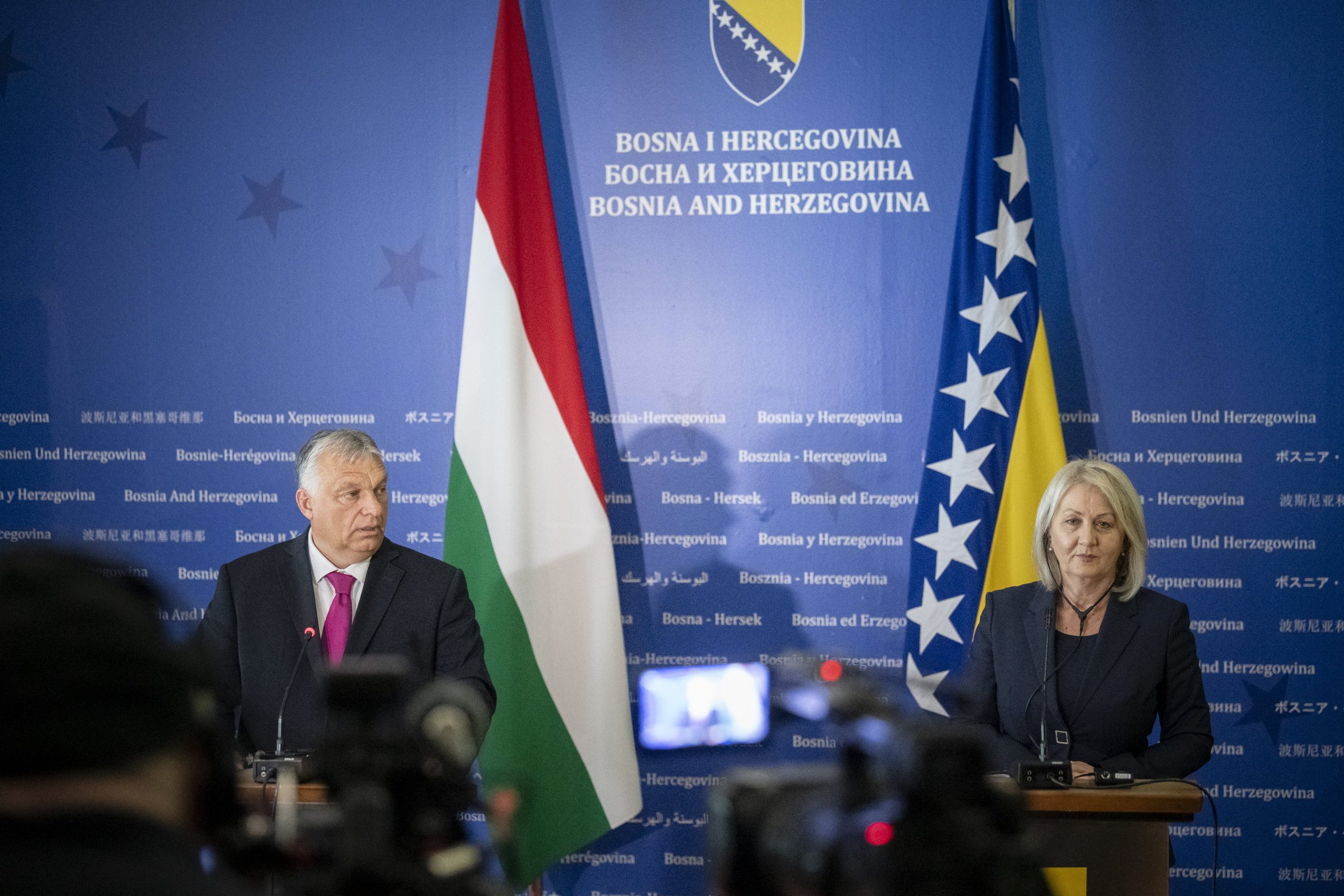
Viktor Orbán stated that Hungary's sovereign foreign policy supports Bosnia and Herzegovina's swift accession to the EU.Continue reading
Bosnia and Herzegovina is a key country for the future of the Western Balkans and all the conditions are in place for the country to start implementing the key priorities set for EU accession, said Oliviér Várhelyi, Commissioner for Enlargement and Neighborhood Policy, in Strasbourg on Tuesday.
Speaking during the European Parliament plenary debate on the European Commission’s 2022 report on Bosnia and Herzegovina, Olivér Várhelyi affirmed that the European Union believes in Bosnia and Herzegovina. That is why the EU Commission has proposed to grant the country candidate status, which was confirmed by the European Council’s decision last December.
He pointed out that
although further reforms were needed, there were signs of positive progress in implementing the required measures.
Among these, the EU Commissioner highlighted the adoption of the state budget, the migration and counter-terrorism strategies, as well as the approval of the draft foreign affairs law, the draft law on the conclusion and implementation of international agreements, and the draft law on freedom of access to information. In addition, the Europol contact point was opened last month, he said.
Várhelyi emphasized the need for the country to focus on a positive and constructive European agenda. This agenda brings real benefits for all, prosperity, stability, and peace.
The European Commission stands ready to use all its instruments to support Bosnia and Herzegovina in this endeavor.
He recalled that twenty-eight years ago, on July 11, 8,372 Muslim men and boys were deliberately and systematically killed in Srebrenica (town in Republika Srpska) by Bosnian Serb forces in the UN “safe area.” “Europe has not forgotten what happened in Srebrenica. In Srebrenica, Europe failed. (…) We want to prevent history from repeating itself,” emphasized the Hungarian EU Commissioner.
In her speech during the debate, Fidesz MEP Kinga Gál said that the current geopolitical situation calls for an approach that is sensitive to the complex problems of the Western Balkans.
In contrast, she said, the report on Bosnia and Herzegovina was unbalanced. Instead of easing tensions, it escalates conflicts.
The Hungarian position proves that dialogue based on mutual understanding is needed instead of lectures and threats of sanctions.
The fact that two out of the three agreements reached in the Berlin process were accepted by the Bosnian Serbs through Hungarian mediation is proof of this policy, she argued.
Bosnia and Herzegovina needs meaningful support, and the best way to achieve this is to speed up the enlargement process. This is the way to pay tribute to the victims of Srebrenica and to do our utmost to ensure that similar atrocities never happen again, she concluded.
Via MTI, Featured photo via www.eeas.europa.eu